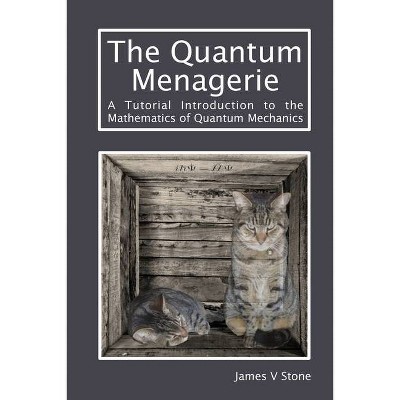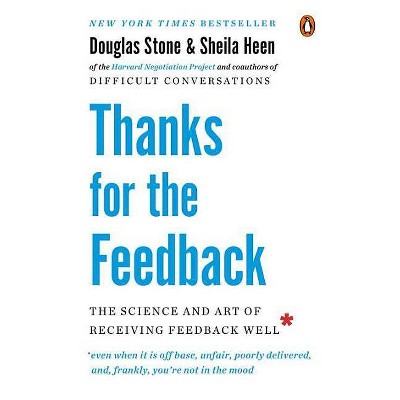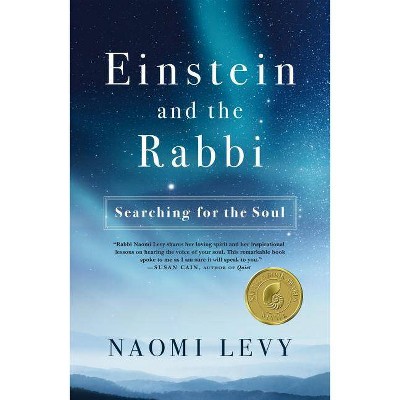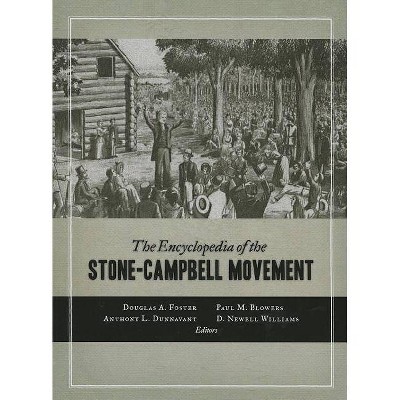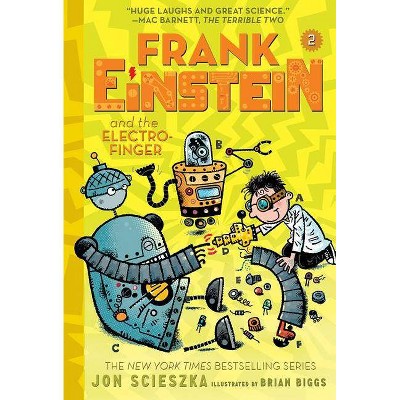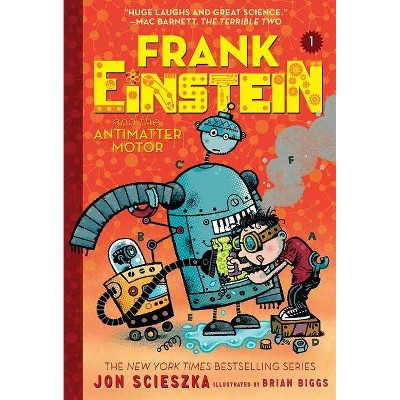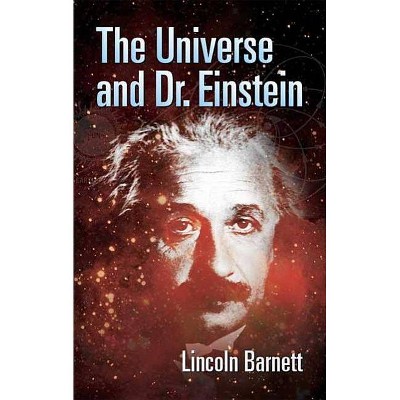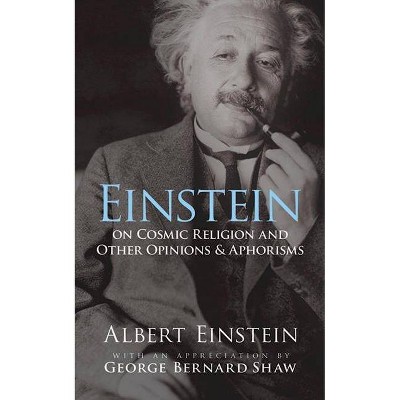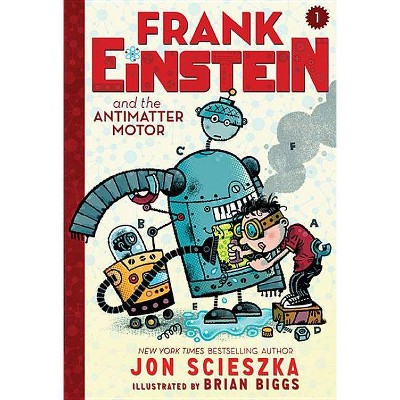Einstein and the Quantum - by A Douglas Stone (Paperback)
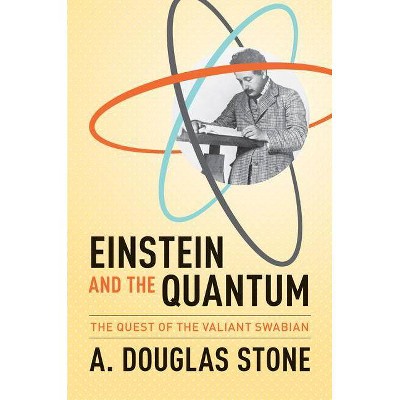
Similar Products
Products of same category from the store
AllProduct info
<p/><br></br><p><b> Book Synopsis </b></p></br></br><p><b>The untold story of Albert Einstein's role as the father of quantum theory</b> <p/><i>Einstein and the Quantum</i> reveals for the first time the full significance of Albert Einstein's contributions to quantum theory. Einstein famously rejected quantum mechanics, observing that God does not play dice. But, in fact, he thought more about the nature of atoms, molecules, and the emission and absorption of light-the core of what we now know as quantum theory-than he did about relativity. <p/>A compelling blend of physics, biography, and the history of science, <i>Einstein and the Quantum</i> shares the untold story of how Einstein-not Max Planck or Niels Bohr-was the driving force behind early quantum theory. It paints a vivid portrait of the iconic physicist as he grappled with the apparently contradictory nature of the atomic world, in which its invisible constituents defy the categories of classical physics, behaving simultaneously as both particle and wave. And it demonstrates how Einstein's later work on the emission and absorption of light, and on atomic gases, led directly to Erwin Schrödinger's breakthrough to the modern form of quantum mechanics. The book sheds light on why Einstein ultimately renounced his own brilliant work on quantum theory, due to his deep belief in science as something objective and eternal.</p><p/><br></br><p><b> From the Back Cover </b></p></br></br><p>"Common lore holds that Einstein's essential contribution to physics is relativity. But in this scholarly and accessible book, A. Douglas Stone argues convincingly that Einstein had a profound impact on the development of quantum theory. With lively, engaging, and thoroughly enjoyable prose, Stone's account is bound to be a definitive history of the subject, vividly establishing that Einstein's genius permeates one of the most startling advances in twentieth-century science."<b>--Brian Greene, author of <i>The Elegant Universe</i></b></p><p>"With his lucid and engaging style, A. Douglas Stone has captured one of the most interesting tales in the history of science. Despite Einstein's later discomfort with quantum theory, Stone shows how absolutely instrumental Einstein was in its development. It's a wonderful story that reveals the essence of Einstein's genius and creativity, and Stone is exactly the right person to tell it. I can hear Einstein chuckling in anticipation."<b>--Walter Isaacson, author of <i>Einstein: His Life and Universe</i> and <i>Steve Jobs</i></b></p><p>"A. Douglas Stone argues that the scientist best known as the creator of relativity theory was also the originator and substantial developer of almost every concept in the quantum mechanics that dominates today's physics. In this scholarly, convincing, and eloquently presented account, Einstein's personal and cultural lives are seamlessly interwoven with his science. I learned a great deal from <i>Einstein and the Quantum</i>, and recommend it to working physicists as well as students and nonscientists wishing to understand a central aspect of the cultural history of the twentieth century."<b>--Michael Berry, University of Bristol</b></p><p>"A. Douglas Stone, a physicist who has spent his life using quantum mechanics to explore striking new phenomena, has turned his considerable writing skills to thinking about Einstein and the quantum. What he finds and makes broadly understandable are the riches of Einstein's thinking not about relativity, not about his arguments with Bohr, but about Einstein's deep insights into the quantum world, insights that Stone shows speak to us now with all the vividness and depth they had a century ago. This is a fascinating book, lively, engaging, and strong in physical intuition."<b>--Peter Galison, author of <i>Einstein's Clocks, Poincaré's Maps</i></b></p><p>"Max Born said, 'Einstein is . . . clearly involved in the foundation of wave mechanics and no alibi can disprove it.' In this informative and engaging book, A. Douglas Stone cracks the case and reveals Einstein's fingerprints all over the subject."<b>--Richard L. Garwin, physicist, recipient of the Enrico Fermi Award and the National Medal of Science</b></p><p>"There's a lot of really good stuff in this book. I enjoyed it enormously. I know of no other book that covers Einstein's role in quantum mechanics so accessibly."<b>--Daniel F. Styer, author of <i>Relativity for the Questioning Mind</i></b></p><p/><br></br><p><b> Review Quotes </b></p></br></br><br><i>Einstein and the Quantum</i> is delightful to read, with numerous historical details that were new to me and cham1ing vignettes of Einstein and his colleagues. By avoiding mathematics, Stone makes his book accessible to general readers, but even physicists who are well versed in Einstein and his physics are likely to find new insights into the most remarkable mind of the modern era.<b>---Daniel Kleppner, <i>Physics Today</i></b><br><br>[S]ome background knowledge in physics is required in order to understand the discipline-specific terminology and to fully appreciate the depth of Stone's elaborations. Having said that, even specialized physicists will not be disappointed by the author's scholarly efforts.<b>---Christopher B. Germann, <i>Leonardo Reviews</i></b><br><br>A fascinating book, so well written lay people can easily understand this. It is full of science and personality.<b>---Ira Flatow, <i>Science Friday</i></b><br><br>Brief, pacey and lucid. . . . The breadth and depth of Einstein's contribution in this area becomes overwhelmingly clear. . . . Worth a read because it demonstrates that there is more to Einstein's oeuvre than even most quantum physicists know. Stone concludes that Einstein's work was worthy of four Nobel prizes, and it is a measure of the book's achievement that his claim sounds quite reasonable.<b>---Graham Farmelo, <i>Nature</i></b><br><br>In consummate detail and with a flair for the written word, [Stone] delves into Einstein's original rationale for espousing the quantum, his use of it to account for the mysterious behavior of specific heats at low temperatures, his explanations of spontaneous and stimulated emissions, and the derivation of the statistics of integer-spin particles. Readers benefit from Stone's deep understanding of quantum physics as well as his thoroughness in citing primary Einstein documents--rather than regurgitating the opinions of others--to support his conclusions. . . . There are only a few books on the history of physics that I can heartily recommend to both scholarly historians and physicists interested in the history of their discipline. Because of Stone's extensive research and writing abilities, <i>Einstein and the Quantum</i> is indeed one of those books.<b>---Michael Riordan, Forum on the History of Physics, <i></i></b><br><br>One of nbc.com's Holiday Gift Books Span the Science Spectrum for 2014<br><br>One of Choice's Outstanding Academic Titles for 2014<br><br>One of Physics World's Top Ten Books of the Year for 2014<br><br>One of Science Friday's Science Book Picks for 2013, chosen by Ira Flatow<br><br>One of Scientific American's Best 2013 Books for the Physics Fan, chosen by Jennifer Ouellette<br><br>Professor Douglas Stone has written an engaging book about Einstein's contributions to early quantum theory. He makes a convincing case that these contributions, most of which were made in the 20 year period between 1905 and 1925, have been historically undervalued and that it was Einstein himself, not Planck or Bohr, who deserves most credit for the initial development of quantum theory. . . . Excellent.<b>---Paul Edwards, <i>Australian Physics</i></b><br><br>Stone is a talented writer. Employing a sharp, clean and ironic prose, he translates into intuitive images and limpid reasoning a set of complex physics arguments, which might appear at first sight incomprehensible without a clear understanding of the technical terms. It is remarkable that the author manages to do this by employing just a handful of elementary equations. Even the uninitiated reader can grasp the essential features of Einstein's groundbreaking proposals as well as of the theoretical problems he was facing. In my opinion, this is the major strength of Stone's book, which makes it much more accessible than other scholarly works that present Einstein's involvement in the development of quantum theory in a more technical fashion.<b>---Roberto Lalli, <i>Metascience</i></b><br><br>This excellent book can be best recommended to everybody interested is the early history of quantum theory and the impact of A. Einstein.<b>---K. E. Hellwig, <i>Zentralblatt MATH</i></b><br><br>This is an excellent book that I recommend without reservation. . . . Any academic library should acquire this book as should any medium-to-large public library system. It would also make a wonderful gift for the physics or science fan in your life.<b>---John Dupuis, <i>Confessions of a Science Librarian</i></b><br><br>Winner of the 2014 Phi Beta Kappa Award in Science, Phi Beta Kappa Society<br><br>A five star, standout book. . . . If you really want a feel for where quantum physics came from . . . it is well worth it.-- "Popular Science"<br><br>Albert Einstein (1879-1955) is as famous for his paradigm-shifting theories of relativity as he is for his grudge against quantum mechanics, but Stone's (Physics/Yale Univ.) engaging history of Einstein's ardent search for a unifying theory tells a different story. Einstein's creative mind was behind almost every single major development in quantum mechanics. . . . The author adeptly weaves his subject's personal life and scientific fame through the tumult of world war and, in accessible and bright language, brings readers deep into Einstein's struggle with both the macroscopic reality around him and the quantum reality he was trying to unlock. . . . A wonderful reminder that Einstein's monumental role in the development of contemporary science is even more profound than history has allowed.-- "Kirkus Reviews"<br><br>In <i>Einstein and the Quantum: The Quest of the Valiant Swabian</i> (Princeton University Press), a historical analysis leavened by many personal stories about Albert Einstein, A. Douglas Stone argues persuasively and engagingly that although this iconic scientist rejected quantum theory as a final theory of microscopic physics, he was responsible for most of its central concepts, including wave-particle duality, indeterminacy and the implications of identicalness.<b>---Sir Michael Berry, <i>Times Higher Education</i></b><br><br>The book is probably best suited to readers who are already familiar with the basic principles of late classical and early quantum physics. However, in many cases, Stone's explanations are better and more intuitive than those found in traditional textbooks; for this reason, <i>Einstein and the Quantum</i> would make excellent 'further reading' for undergraduate courses in thermodynamics, modern physics or the history of science. Stone also has a knack for summing up complex ideas in a way that even novices will understand.-- "Physics World"<br><br>This engaging book shows that Einstein spent more of his career on quantum physics than on relativity theory and was deeply involved in discussions that shaped current understanding of the subject. . . . His well-written book makes often-trod history fresh, with new perspectives and unfamiliar quotations from Einstein and his peers. Anyone with an interest in the subject, from scholars to laypersons, can read and enjoy this book.-- "Choice"<br><p/><br></br><p><b> About the Author </b></p></br></br><b>A. Douglas Stone</b> is the Carl A. Morse Professor of Applied Physics and Physics at Yale University.
Price History
Cheapest price in the interval: 16.89 on October 27, 2021
Most expensive price in the interval: 16.89 on December 20, 2021
Price Archive shows prices from various stores, lets you see history and find the cheapest. There is no actual sale on the website. For all support, inquiry and suggestion messagescommunication@pricearchive.us
